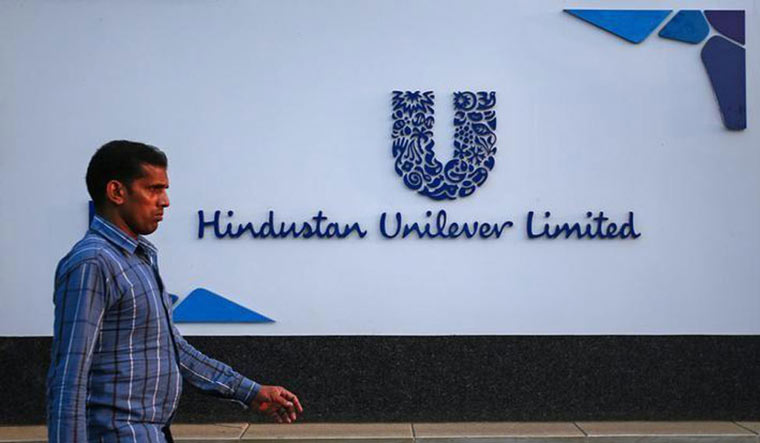Fast-moving consumer goods are among the less impacted sectors due to the COVID-19 pandemic. But, as results from the largest player in the country, Hindustan Unilever, show, it is not immune to disruptions.
The maker of Bru coffee and Surf detergent reported a net profit of 2,061 crores in the April-June quarter, which was up 10 per cent from a year ago, but down 4 per cent sequentially. Analysts tracked by Bloomberg had expected HUL to report a net profit of Rs 2,211 crore.
Similarly, its total income in the first quarter stood at Rs 11,982 crore, up 12 per cent year-on-year, but down 2 per cent compared with January-March.
In the June quarter this year, the second wave of COVID-19 hit the country hard, but lockdowns were localised and restrictions less severe than the year-ago quarter when there was a complete lockdown.
HUL’s volume growth (number of units sold) in the June quarter was at 9 per cent, compared with a 16 per cent volume growth in the March quarter.
What should be heartening is that as restrictions were lifted from June, growth rebounded to March levels.
“May was a very tough month, when we saw very high amount of infections around the country and there were restrictions that were put into place. With restrictions, mobility gets impacted and hence the consumption occasions get impacted. As June quarter ended and into July, we have seen a very sharp reduction in infections compared to the peak we had. As we see in June-July, we are seeing our business levels in terms of industry FMCG growth and market levels, similar to where it was in March,” said Ritesh Tiwari, chief financial officer at HUL.
A resilient rural growth should also augur well for the company, which has among the largest distribution networks across India’s hinterlands.
“Rural is resilient and has started to come back strongly ahead of urban. Growth in urban also got impacted because of footfalls being limited in modern trade channels. So, we are hopeful that with a stronger monsoon and Kharif sowing, we should be able to see stronger growth in the rural economy and that should help us,” said Tiwari.
In a bid to curb the spread of COVID-19 cases, many states have limited store timings, particularly in cities, and shopping malls in many places remain completely shut. In this backdrop, e-commerce has gained strong traction and companies like HUL are cashing in on this.
“We have doubled our e-commerce business in the quarter. The way we see e-commerce, between our Shikhar (business-to-business) app and e-commerce, more than 10 per cent of our growth now comes from the both put together,” said Tiwari.
In the last few quarters, the company has been looking to drive the usage of the Shikhar app among its distributors and retailers and its contribution now has gone up six times from the levels in June 2020. Contribution from e-commerce channels has also now doubled than what it was in the year-ago quarter. To accelerate its e-commerce sales, HUL has launched packs designed exclusively for this channel and has rolled out a range of premium beauty products under its digital-only brand Simple.
The company is also expanding its multi-brand direct-to-consumer platform UShop.
Discretionary categories like skincare, deodorants, out-of-home business, ice-creams, account for around 15 per cent of HUL’s portfolio and this is an area where sales are yet to catch up to pre-pandemic levels.
“If you look at June 2019, and compare with June 2020, discretionary sales had come down to half the level. If you look at June 2021, they have moved up from the 50 per cent level to the 75 per cent level. These are directly linked to mobility. In the March quarter, we had seen significantly better discretionary sales, because mobility was improving. If we are able to vaccinate more people with speed, the mobility will go up and the discretionary categories will bounce back robustly,” said Sanjiv Mehta, the chairman and MD of HUL.
HUL shares ended down 2.3 per cent to Rs 2,378.65 as investors were disappointed with the results. The wider BSE Sensex surged 639 points or 1.2 per cent to end at 52,837.21.





